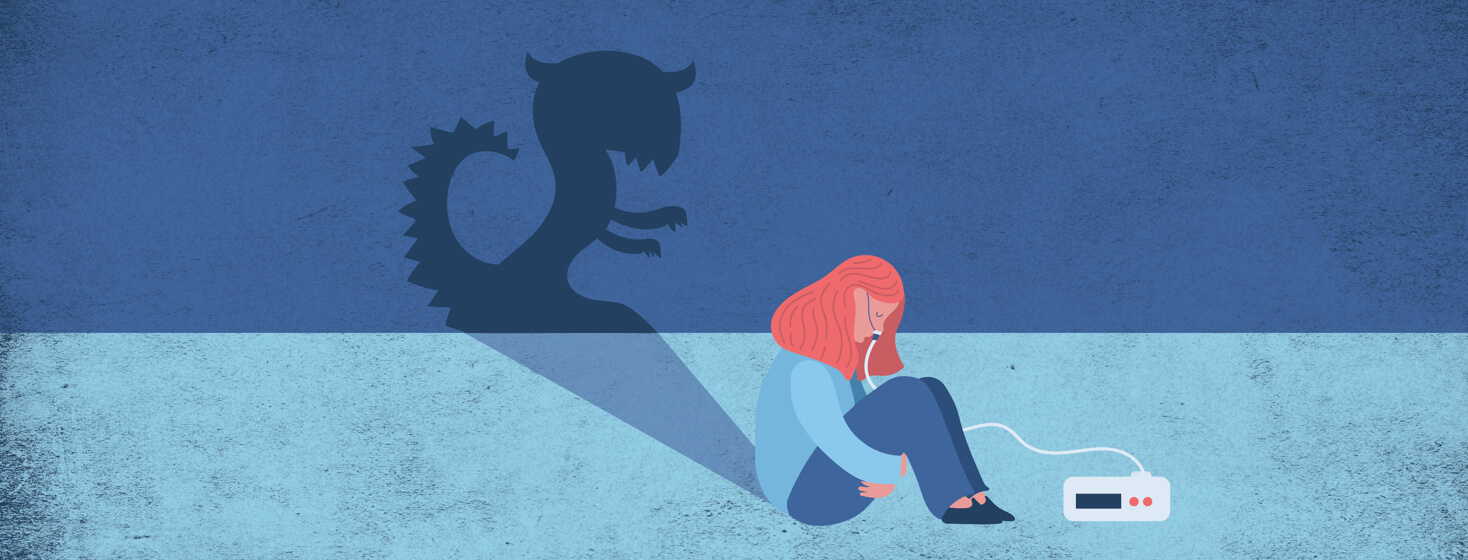Depression and Sleep Apnea
Sleep apnea is usually not a stand-alone condition. If you have sleep apnea, you might have something else going on. I certainly did before I developed sleep apnea.
If you are one of the people who did not have any conditions prior to sleep apnea, there is a chance you have developed one after. One of those could be depression. This is a typical reaction to developing a new medical diagnosis.
It is important not to let this control our lives and that we manage it and keep it under control. If we are lucky, it may just be transient and goes away after a while.
I don't want depression to control my life
One reason you want to manage it is because depression is not fun. While an obvious statement, you can dig deeper into it and think about how it can control your life. It’s more than just not fun. It is a condition that can control you. While it isn’t fun, sleep apnea is arguably one of the better conditions to get if you are going to get one.
It is easily managed and doesn’t require any medications. The only downside for some is using a CPAP machine. Personally, I am used to it and it doesn’t bother me, but there are some people who can’t get used to it.
Depression can make sleep issues worse
Depression can cause sleep issues. This isn’t good when you already have a diagnosed sleep disorder. Anyone with depression will likely tell you they either sleep too much or more than normal, or they don’t sleep enough or have trouble sleeping. Whichever one they fall under, many will agree that the quality of sleep they get, regardless of how long, is pretty bad.
Sleep apnea can cause a little worse sleep, even with a continuos positive airway pressure (CPAP) machine for some people, so compounding that with depression and the sleep issues that come with it doesn’t help keep you healthy and not tired.
Managing sleep apnea to prevent chronic depression
Sleep apnea is a condition I personally feel shouldn’t lead you to chronic depression. I am with you in the initial depression of having been diagnosed with a sleep disorder. That is completely normal to me. However, while chronic, this condition doesn’t really lead to many issues as long as you can manage it.
The best part is, it doesn’t need any medications or chemicals put into your body to control it. Yes, CPAP machines aren’t fun, but they also don’t have any side effects on the body like medications can have. Yes, some people have anxiety and claustrophobia, which make CPAPs near or impossible to wear. CPAP machines do take time to get used to, but for many, we can wear them, and that is the end of it.
You may need adjustments from your sleep doctor as needed, but that’s really it. Of all the medical diagnoses I have, this is by far the easiest for me to manage with the least amount of side effects.
Getting help for depression
Depression shouldn’t take over your life, affect your sleep, or cause a lifelong issue for you. If you are experiencing depression, please seek help from your doctor so you can manage it. Most people can manage it through nonpharmaceutical or pharmaceutical means with great success.
It’s OK to ask for help. Don’t live with depression and let it affect your whole life when it can be treated. The stigma behind mental health is thankfully starting to go away as people recognize the importance and seriousness of these conditions.

Join the conversation